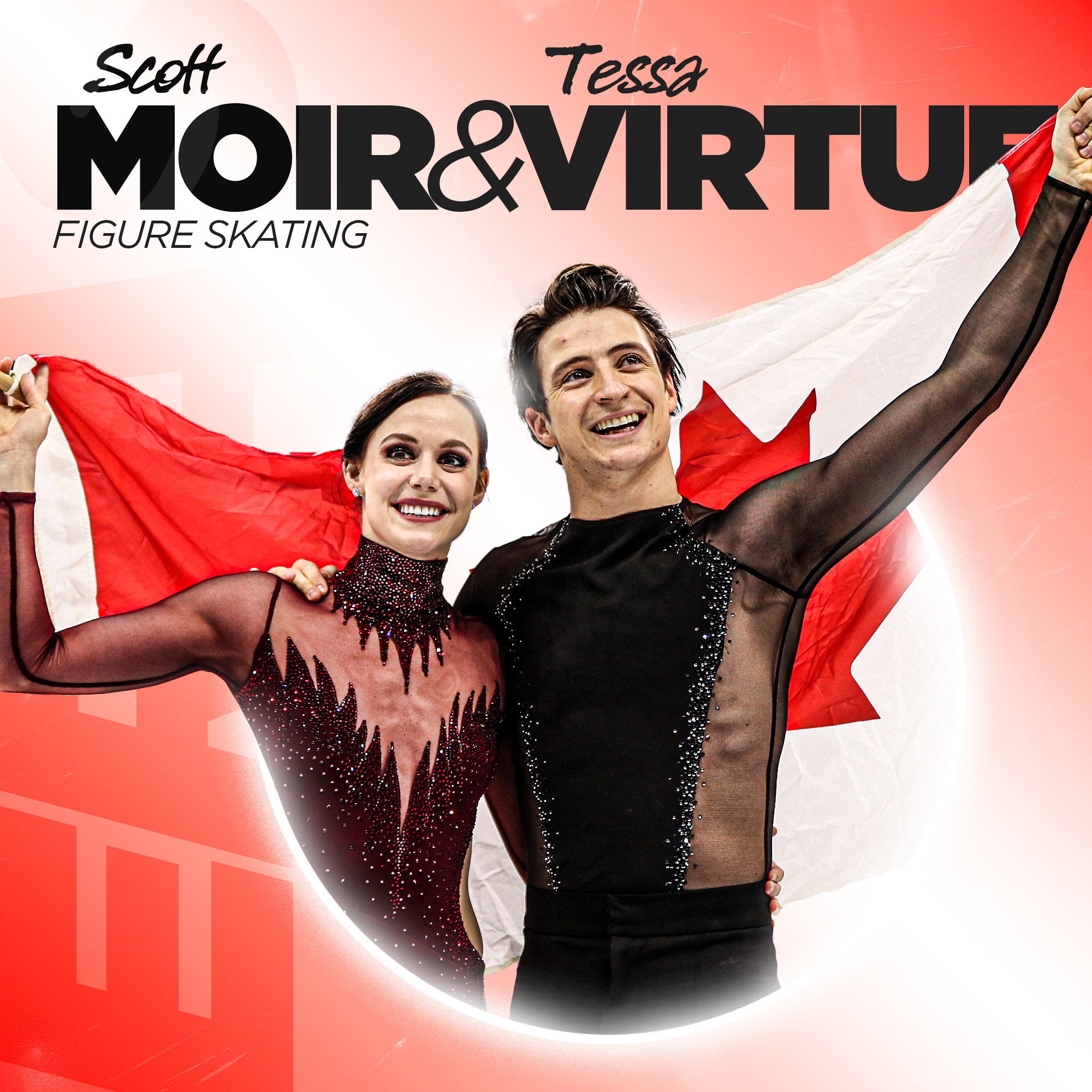Five-ring circus: Top 5 Canadian Olympic legends of the last 25 years
Thousands of athletes since the 2000 Sydney Games have worn the maple leaf with dreams of stepping on an Olympic podium. Only a select few have achieved repeated success over multiple Games to become national legends.
Our Eras series highlights the top 25 Olympians this millennium, and today's instalment focuses on six Canadians who have achieved Olympic acclaim and cemented themselves as part of the country's sporting canon this century.
Think future Canadian Heritage Minutes - signature Olympic performances that will outlive even the athletes themselves.
The six athletes on this list are the best Canadian Olympians not covered in our sport-specific Eras editions for the NBA, MLB, and NFL (and the NHL in the fall).
Tuesday: International achievers
Thursday: Winter wonders
Friday: Summer sensations
Saturday: Greatest American heroes

Signature performance: At the 2018 PyeongChang Olympics, Scott Moir and Tessa Virtue's free dance to "Moulin Rouge" secured the gold medal in ice dance. That cemented their status as the most decorated figure skaters in Olympic history with five total medals.
Why they're here: Moir and Virtue are inseparable in the minds of many Canadians, so we've included them together on our list. The duo first captured global attention at the 2010 Vancouver Olympics, earning gold and making them the first North American ice dancers to achieve this feat and the youngest ice dancers to do so (he was 22, she was 20).
At the 2014 Sochi Olympics, Virtue and Moir delivered another set of exceptional performances, securing the silver medal behind their training partners and rivals Meryl Davis and Charlie White of the United States.
Virtue and Moir's Olympic career reached its pinnacle in PyeongChang, where they reclaimed ice-dance gold and contributed to Canada's gold in the team event. In the short program, they set a world-record score of 83.67. Their masterful free dance performance of "Moulin Rouge" earned them 122.40 points, enough for second in the category. Their combined score of 206.07 points set a world record and earned them gold.
Virtue and Moir also boast seven world championship medals (including three golds). They count for two of the five skaters to have won three Olympic gold medals, and their two team competition medals boost them to stand together as the most decorated figure skaters in Olympic history with five medals.

Signature performance: At just 16 years old, Oleksiak tied Simone Manuel for gold in the 100-meter freestyle final at the 2016 Rio Games, setting an Olympic record in the process.
Why she's here: Oleksiak's seven Olympic medals make her Canada's most decorated Olympian.
She established her reputation in the pool in Rio where she captured four medals, including the shared gold in the 100-meter freestyle. That made her the most decorated Canadian athlete at a single Summer Games.
Oleksiak added three more medals at the 2020 Tokyo Olympics. She won silver in the 4x100-meter freestyle relay, bronze in the 4x100 medley relay, and bronze in the 200-meter freestyle.

Signature performance: At the Tokyo Games, De Grasse earned his first individual gold in the 200m with a time of 19.62 seconds, setting a national record for Canada.
Why he's here: De Grasse made his Olympic debut in Rio, where he earned three medals: a silver in the 200m, a bronze in the 100m, and a bronze in the 4x100m relay. That made him the first Canadian sprinter to medal in all three events. He was also the first Canadian to medal in the 100m since Donovan Bailey in 1996.
De Grasse built on that success in Tokyo. He won gold in the 200m, becoming the first Canadian to do so since Percy Williams in 1928. Additionally, he repeated his bronze medal in the 100m and helped the Canadian team win silver as the anchor in the 4x100m relay.
A latecomer to elite athletics, De Grasse has demonstrated consistency and resilience throughout his Olympic career. His ability to perform on the biggest stage has made him a prominent figure in Canadian sports and extended Canada's legacy of sprint excellence. Another medal in Paris would tie him with Oleksiak as the most decorated Canadian Olympian of all time.

Signature performance: Hayley Wickenheiser's best Olympic performance was in Salt Lake City, where she led the 2002 tournament in points with seven goals and 10 assists. Her performance was crucial in helping Canada defeat the United States 3-2 in the final. This victory marked Canada's first Olympic gold in women's ice hockey and solidified Wickenheiser's reputation as a key figure in the sport.
Why she's here: Wickenheiser made her Olympic debut at the 1998 Nagano Winter Games, where Canada won silver in women's ice hockey's first Olympic foray. But those Games fall outside the bounds of our Eras project.
Wickenheiser earned her first of two MVP awards in Salt Lake City. Her second came in Turin in 2006, where she contributed five goals and 12 assists en route to gold. She also won gold in Vancouver in 2010 after serving as Canada's flag bearer for the opening ceremony.
Wickenheiser competed in her final Olympics in Sochi, where she and Team Canada won yet another gold medal. This made her a four-time Olympic gold medalist and one of the most decorated athletes in women's ice hockey. Over her five Olympic appearances, she became known for her leadership and skill. Across all international play, Wickenheiser remains Canada's national team's leading scorer. She also tops the points leaderboard in Olympic women's ice hockey with 51 points (18 goals and 33 assists).

Signature performance: Sinclair's hat-trick at the 2012 London Games is considered one of her greatest performances of all time. Despite Canada's eventual 4-3 loss to the Americans in that semifinal, her effort has been canonized as one of the greatest individual contributions in women's international soccer.
Why she's here: At age 25, Sinclair captained Canada's women's soccer team in its first Olympic appearance: 2008 in Beijing. Canada's impressive showing - including a quarterfinal loss in extra time to a U.S. squad that went on to win gold - established the Canadian women as a legitimate threat on the world stage. Sinclair helped them build this reputation with a game-tying goal in the 30th minute that put Canada on its upward trajectory.
In the London semifinal, each of Sinclair's three goals gave Canada a lead until the Americans scored in the 123rd minute. Sinclair did make it onto the podium at those Games, earning a bronze medal after a 1-0 victory over France.
At the Rio Olympics, Sinclair, by then 33, proved why she is considered one of the greatest Canadian athletes of her era by scoring the game-winner in the bronze-medal match against Brazil.
And she still wasn't done. Sinclair wanted the storybook golden ending to her career - and she got it. Her Olympic journey reached the pinnacle at the Tokyo Olympics, where she became the all-time leading scorer in international soccer history, surpassing Abby Wambach's record of 184 goals. She then went on to lead the Canadian team to its first Olympic gold in a victory over Sweden that was decided on penalty kicks.
Jolene Latimer is a features writer at theScore.